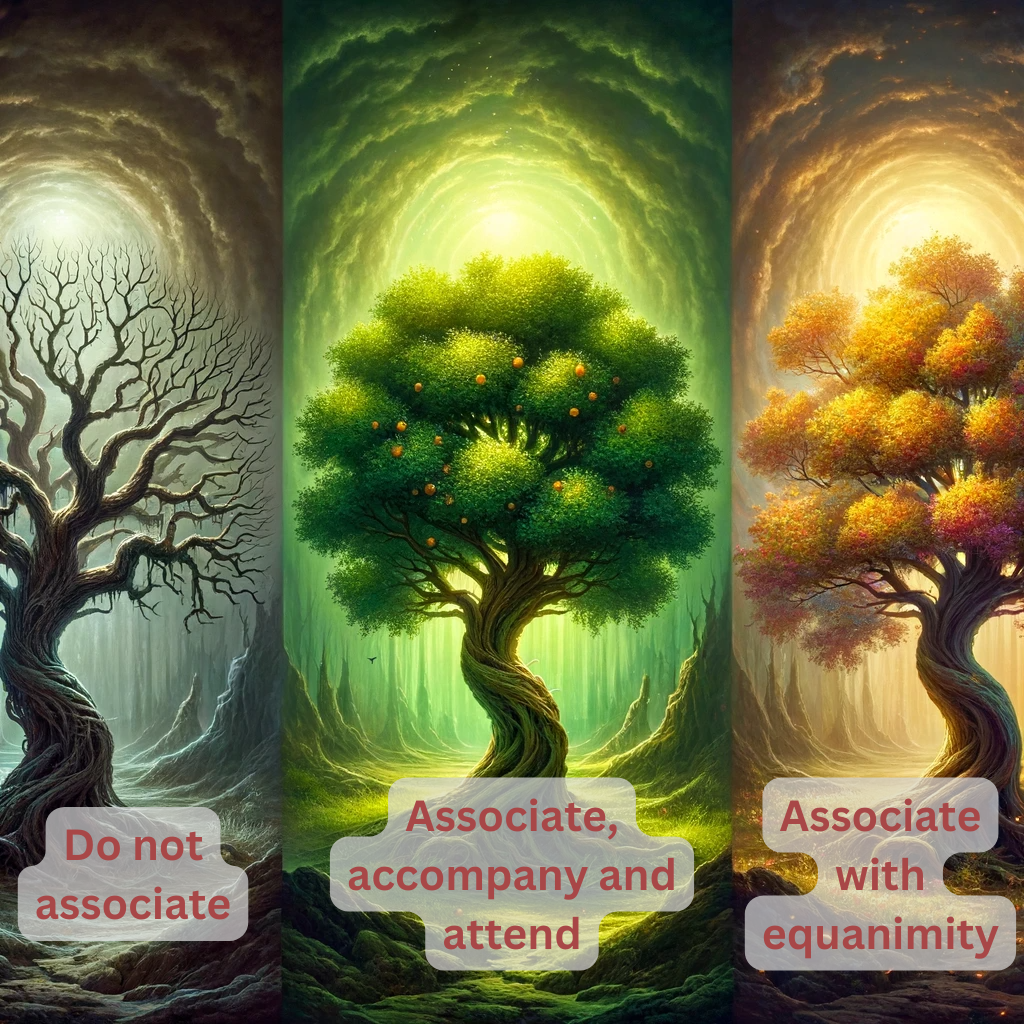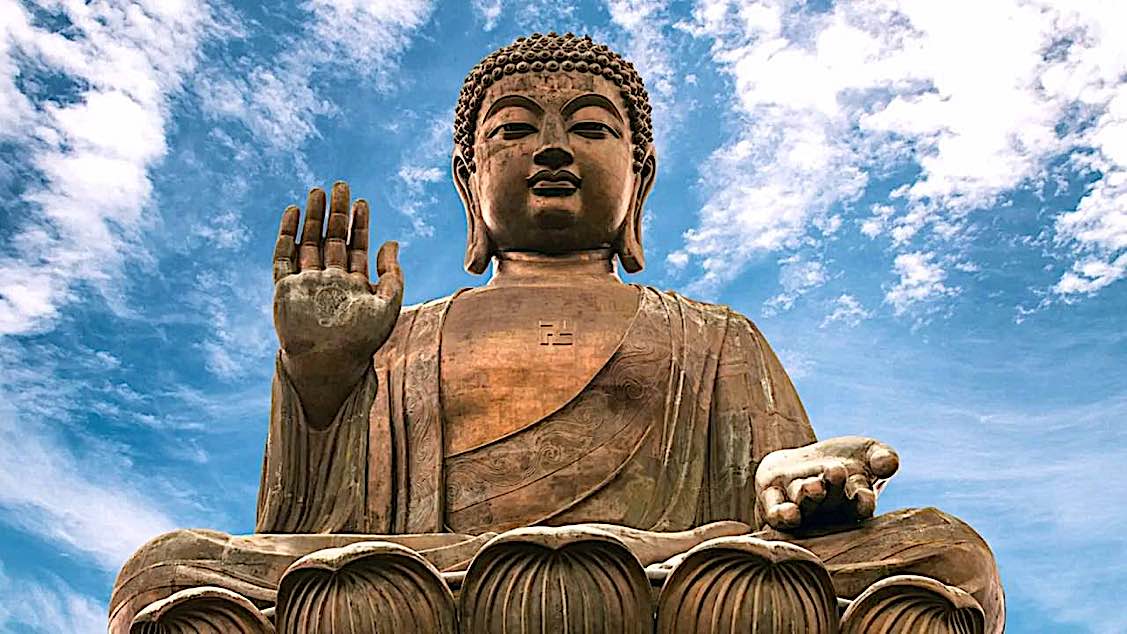
“These three people are found in the world. What three? There is a person who you should be disgusted by, and you shouldn’t associate with, accompany, or attend them. There is a person you should regard with equanimity, and you shouldn’t associate with, accompany, or attend them. There is a person you should associate with, accompany, and attend.
Who is the person you should be disgusted by, and not associate with, accompany, or attend? It’s a person who is unethical, of bad qualities, filthy, with suspicious behavior, underhand, no true ascetic or spiritual practitioner—though claiming to be one—rotten inside, corrupt, and depraved. You should be disgusted by such a person, and you shouldn’t associate with, accompany, or attend them. Why is that? Even if you don’t follow the example of such a person, you still get a bad reputation: ‘That individual has bad friends, companions, and associates.’ They’re like a snake that’s been living in a pile of dung. Even if it doesn’t bite, it’ll still rub off on you. In the same way, even if you don’t follow the example of such a person, you still get a bad reputation: ‘That individual has bad friends, companions, and associates.’ That’s why you should be disgusted by such a person, and you shouldn’t associate with, accompany, or attend them.
Who is the person you should regard with equanimity, and not associate with, accompany, or attend? It’s a person who is irritable and bad-tempered. Even when lightly criticized they lose their temper, becoming annoyed, hostile, and hard-hearted, and they display annoyance, hate, and bitterness. They’re like a festering sore, which, when you hit it with a stick or a stone, discharges even more. In the same way, someone is irritable and bad-tempered. They’re like a firebrand of pale-moon ebony, which, when you hit it with a stick or a stone, sizzles and crackles even more. In the same way, someone is irritable and bad-tempered. They’re like a sewer, which, when you stir it with a stick or a stone, stinks even more. In the same way, someone is irritable and bad-tempered. Even when lightly criticized they lose their temper, becoming annoyed, hostile, and hard-hearted, and they display annoyance, hate, and bitterness. You should regard such a person with equanimity, and you shouldn’t associate with, accompany, or attend them. Why is that? Thinking, ‘They might abuse or insult me, or do me harm.’ That’s why you should regard such a person with equanimity, and you shouldn’t associate with, accompany, or attend them.
Who is the person you should associate with, accompany, and attend? It’s someone who is ethical, of good character. You should associate with, accompany, and attend such a person. Why is that? Even if you don’t follow the example of such a person, you still get a good reputation: ‘That individual has good friends, companions, and associates.’ That’s why you should associate with, accompany, and attend such a person.
These are the three people found in the world.
A man who associates with an inferior goes downhill,but associating with an equal, you’ll never decline;following the best, you’ll quickly rise up,so you should keep companywith people better than you.”
The Buddha shares guideline on choosing one’s associations and company. For it is through associations that one can decline, avoid decline or grow in qualities.
- By associating with a person who is unethical, one is giving rise to the same qualities, leading to decline.
- By associating with a person of bad temper, with ill-ill, one is giving rise to similar qualities, leading to decline.
- By associating with a person who is ethical, one is giving rise to similar qualities in oneself, leading to their growth, not decline.
Related teachings:
- Teachings on the eight harmful and beneficial qualities (external link)
- Another discourse on who to associate with
- Factors to cultivate faith (association with wise is one of the four factors) (external link)
- Moral law of attraction (external link)


I read it as a warning on choosing who to associate with and who to avoid. Here’s another teaching that frames it in positive: https://lemmy.world/post/10788878. The Buddha often taught in both ways to ensure his teachings were well-understood.
There is an openness to interpretation of this being judgemental with the very vivid simile, but when you see the Buddha’s teachings as a whole, the interpretation that applies here is one of cultivating discernment on who to associate with. There is a subtle but important distinction between the two: discernment is you cultivating wisdom about the world, of the good and the bad without creating ill-will or judging others. You can see this being true when you also read: https://suttacentral.net/mn21/en/sujato, where he recommends maintaining a mind of love even if somebody were to sever you limb by limb with a saw. The Buddha uses these very vivid similes to convey how to apply the teachings.
On the association aspect, it’s a very crucial aspect as it is the single external force that enables one to either cultivate and grow in spiritualities or leads to decline in their qualities. And this isn’t as well understood.
Thank you. I’ll read through these.